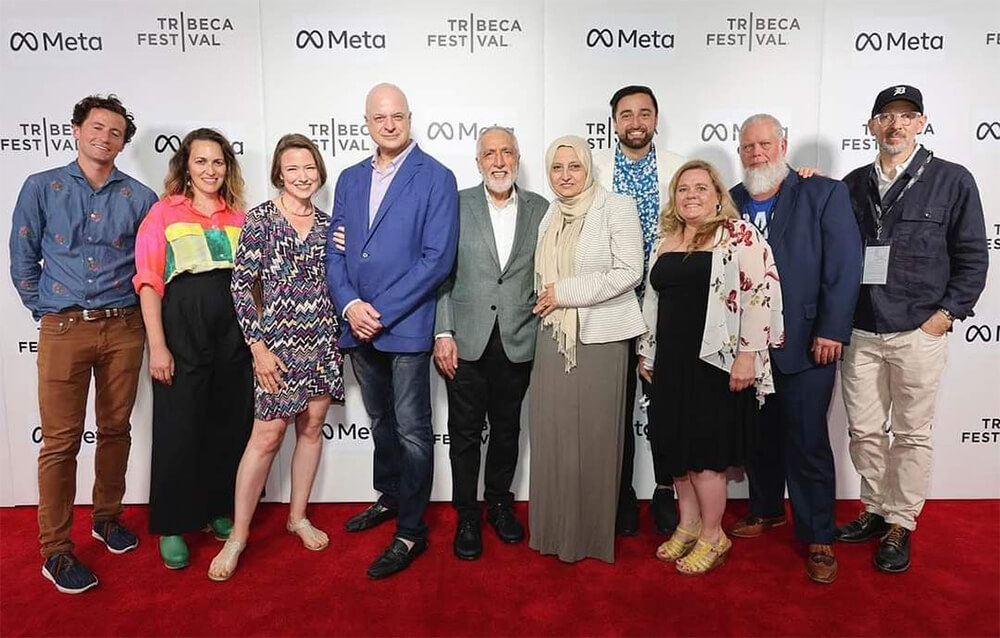TouroCOM Professor Honored with Oscar Nomination for Film
Dr. Conrad Fischer Teams with Nobel Peace Prize Winner Malala Yousafzai to Challenge Common Misconceptions

TouroCOM professor Dr. Conrad Fischer is a practicing physician who works in internal medicine, infectious diseases and palliative care. Aside from seeing patients and teaching med students, Dr. Fischer is also a theologian ordained as an interfaith minister and as a deacon of the Russian Orthodox Church, as well as the president of the Institute for Studies in Eastern Christianity. And if that’s not enough, Dr. Fischer is also the Oscar-nominated producer of the film Strangers at the Gate, for which he collaborated with co-producer, Malala. Dr. Fischer spoke to us about his passion for medicine, film and sharing the stories of those who have no voice.
How and why did you get involved with the production of Strangers at the Gate?
I had previously produced an off-Broadway play, Lost and Guided, about refugees coming to America. My work in theatre intersects with medicine, conflict regions (fancy term for war zones) and refugees. I do not like that so many in America view refugees as beggars and "moochers" off of society. I grew up hearing the story of the voyage of the "Saint Louis", in which Jewish refugees from Europe were denied entry in Cuba and America in 1939, and I made a pledge to myself that if refugees were denied entry again or discriminated against on the basis of religion, I would do something about it.
I then made a short film, Aleppo, about an immigrant Syrian American doctor. She is at the top of American society and then struggles with head trauma after returning from a trip to Syria to volunteer. This theatrical work was intended to change American thought about Syrians who are the religious 'other' for many and associated with terrorism, poverty and war. Hence, it makes it easy to look away from the six million Syrian refugees living in tent camps. By telling the story of one doctor, one person, I hoped to lead people to care about the group.
What was it like working with Nobel Peace Prize winner Malala on this project?
It was pretty amazing to get her interest in the film and it has been a game-changer. No short film ever gets this much attention and especially no short documentary. The association with Malala is even bigger in some ways than the Oscar nomination.
Speaking of which, how does it feel to be an Oscar nominee?
It is quite exhilarating really. It gives you a "How did I get here?" feeling after putting in all that hard work. Those cameras do not pay for themselves! This is our moment and we do not count on it ever coming back. The nomination is a tool. It is a tool to bring attention to hate crimes especially on a religious basis.
What is the film’s take-away message? Why is it critical in today’s society?
The message is about humanizing us to each other. The message is that acts of loving kindness really can transform the world and our own hearts. The story is important because it shows that it is not any one particular faith or cultural tradition that matters. We will be judged or measured or assessed based on how much love we gave.
How do you merge your roles as doctor and minister?
Practicing in palliative care and being the head of the hospital's ethics committee gives me a routine way to merge them. There is a lot of prayer at the end of life. I keep most religious terminology away from students because we have such a diverse group but when you combine patient care and religion, families and patients really appreciate it.
How do you feel the documentary’s storyline ties in with Touro’s mission?
I like to think we have both an intellectual and a spiritual/ethical community. Healing of the body and healing of the mind from hateful thoughts goes hand in hand with the healing of the soul of our society. There are nearly 50,000 a year dying of suicide and another 100,000 from drug overdoses. This means our whole society needs cleansing from depression and hatred. The movie does this.
What’s your next project?
People in theatre and film really pay attention to you once you get an Oscar nomination. My work will be in the same area. Freedom from hatred and bigotry, medicine and theology. I feel like I am just getting started. I will decide after March 12, which is the Oscars!

